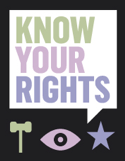Fáilte, IJLS!
 As prefigured here a little while ago, there is a new peer-reviewed Irish legal journal, the Irish Journal of Legal Studies. The publication of Volume 1, Issue 1, 2010 has just been announced on the journal’s homepage, and the contents of the first issue are as follows:
As prefigured here a little while ago, there is a new peer-reviewed Irish legal journal, the Irish Journal of Legal Studies. The publication of Volume 1, Issue 1, 2010 has just been announced on the journal’s homepage, and the contents of the first issue are as follows:
Sexual Violence: Witnesses and Suspects, a Debating Document by Mr Justice Peter Charleton and Stephen Byrne. From the abstract:
This article explores the rules of evidence and criminal procedure as they apply in sexual offence cases, in the context of recent empirical accounts of attrition rates in sexual offences, and having regard to the rights of the accused and the need to maintain a fair balance that limits the potential for injustice.
The Constitution and the Protestant Schools cuts Controversy: Seeing the Wood for the Trees by Eoin Daly. From the abstract:
This article argues that special financial arrangements for Protestant secondary schools, recently controversially withdrawan, constituted a species of constitutionally permissible, if not constitutionally required, accommodation of religion. This controversy also serves as a prism through which to view the broader limitations of the constitutional framework for the guarantee of religious freedom in the education context.
Managerialism in Irish Universities by Professor Steve Hedley.…



 These are special days in the history of Irish constitutional rights. On December 29, 1937 the
These are special days in the history of Irish constitutional rights. On December 29, 1937 the